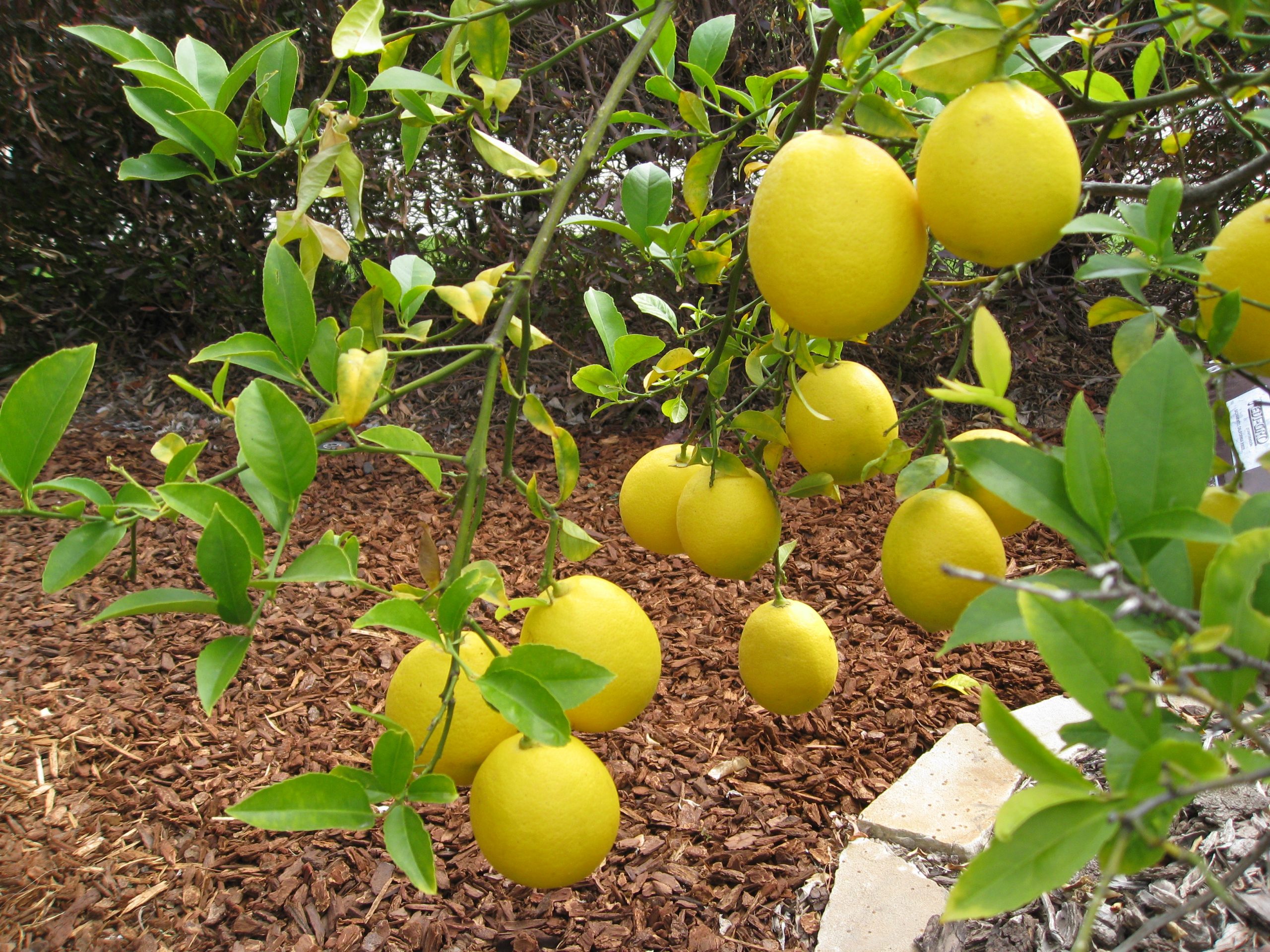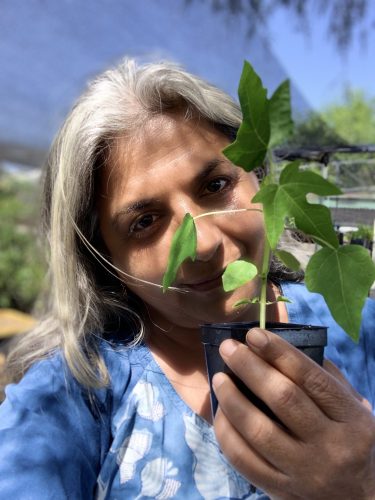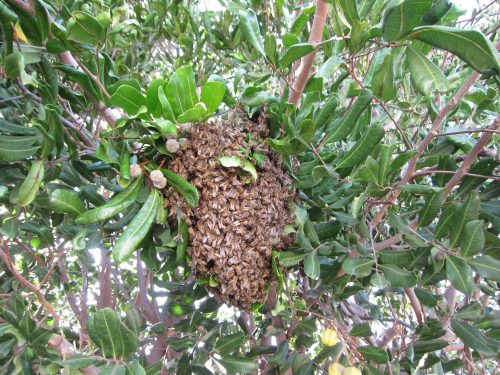We received a question about a sad lemon tree this week so it’s time to revisit our advice for basic citrus care. The question came from Kim Van Buskirk:
“Recently bought a Meyer lemon tree. It had quite a bit of new [foliage] but a lot of hard curling leaves. In the 5 weeks since transplant the leaves are still hard but turning yellow. Almost right away it started blooming and now has many starting lemons. I have been fertilizing, but not sure if over or under watering or over fertilize. Any suggestions??”
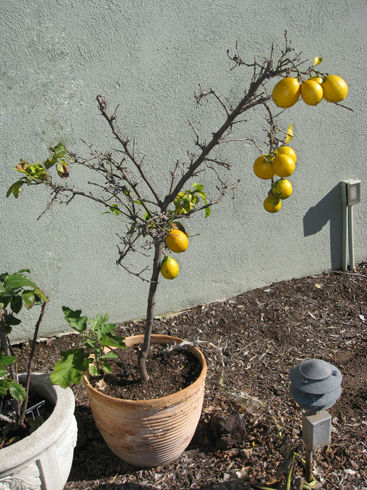
Thanks for your question, Kim. Citrus trees can be tricky because even when they are spindly and sad, they can produce a crop of fruit. Here are some suggestions for what might be the issue:
Over Watering
Most people over water their citrus trees. Since the tree is new, it needs water more often than a mature tree, but in general citrus prefer infrequent but deep watering. Try cutting back to 1x per week if you haven’t already. Then as the tree grows in, reduce to every 2 weeks, every 3 weeks, and so on. Here is blog post that goes into detail about why your leaves are turning yellow.
Plant Stressors
Hard curling leaves indicate some type of plant stress that may have occurred before you even bought the tree. If it was in a pot at the nursery for a long time, or neglected in some way (root girdling, under watering, under fertilizing, etc.), or has a pest issue, those leaves are evidence. Damaged leaves don’t recover, but eventually fall off. So that’s what’s happening there.
Look for new citrus leaf growth along with those flowers and fruit. If you see that, you’re on the right track. If the new leaves grow in curled, you probably have a pest or nutrient issue. Here is another blog post to illustrate some other options you can do to help generate more leaf growth.
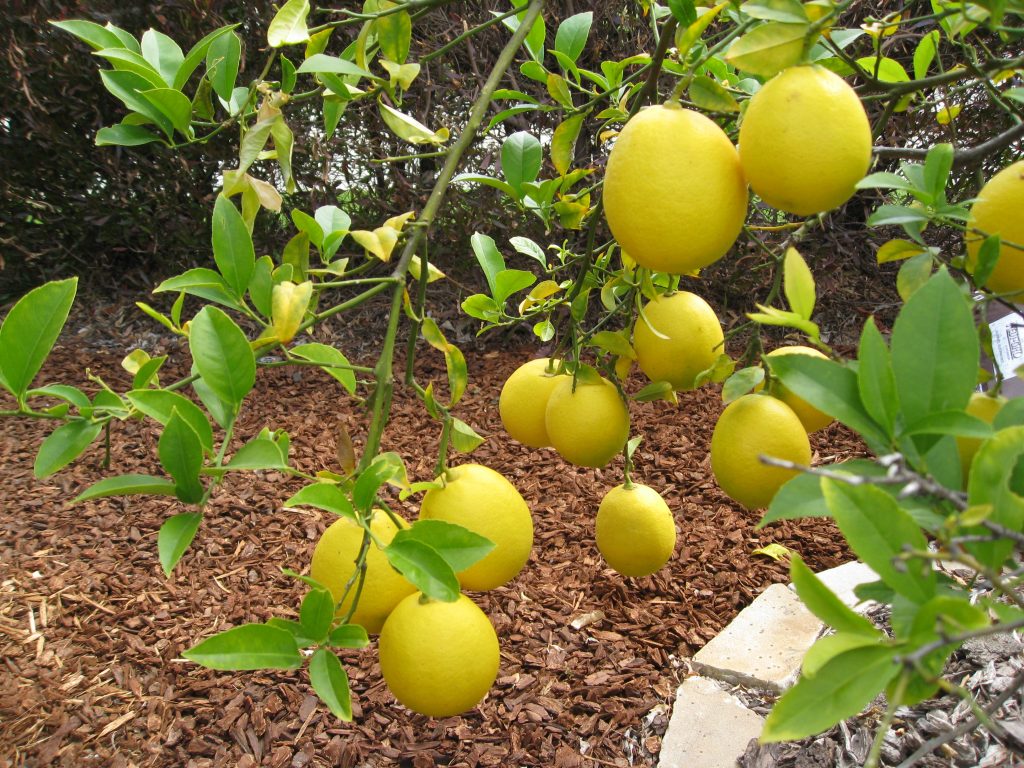
Over Fertilizing?
To know whether you are over fertilizing, do a simple NPK nutrient test. These test kits are available online or at your local nursery. Do the test and amend based on the results. Believe me, it’s like driving with your eyes open.
If you think it might be something else, read up about other possible citrus leaf issues here. The recommendations to remedy the issues are not always organic, but once you diagnose the issue, you can search for an organic method of treatment.
I hope this helps you solve your citrus leaf problem, Kim. Thanks for writing in!

